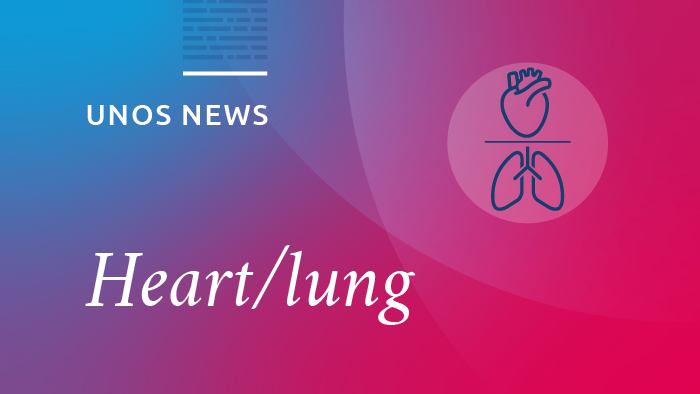The Thoracic Committee is proposing modifications to the adult heart allocation system and these proposed changes are currently out for public comment. The Committee presented a webinar on February 2, from 2-3:30 p.m. (ET), to explain the proposed changes, and to encourage members to comment on the proposal.
Webinar content
This webinar is designed to explain the proposed changes, the problems that the proposal will solve, the goals of the proposal and alternatives the committee considered. After participating in this webinar, attendees will understand the potential impact the proposed changes would have on their transplant centers if it passes.
The problem:
There are candidate groups disadvantaged by the current system for various reasons, such as their diagnosis, the way their physician chooses to treat their condition, or because of geographic location. The Thoracic Committee determined there are four major problems with the current system:
- Status 1A candidates are three times more likely to die on the waiting list than candidates in any other status
- Too many exception requests required
- Increased use of mechanical circulatory support devices (MCSDs) and associated complications not accommodated by current system
- Geographic sharing scheme is inequitable
Proposed changes
The Committee proposes two significant changes to the adult heart allocation system:
- Add more urgency stratifications based on relative waiting list mortality rates for all adult heart candidates
- Modify the geographic sharing scheme to provide the most medically urgent candidates access to donors from a broader geographic area
Goals of proposed changes
The Committee’s goals in modifying the adult heart allocation status.
- Reduce waiting list mortality rates
- Reduce the use of exceptions to qualify for a status by better accommodating all candidate groups within the heart allocation system
- Ensure that qualifying criteria for the statuses are based on objective physiological indications rather than therapeutic intervention
- Improve overall access to transplantation in the heart allocation system by modifying geographic distribution to ensure maximum utility of donor hearts
Webinar Presenter:
Joseph G. Rogers, MD, Chair of the OPTN/UNOS Thoracic Organ Transplantation Committee

